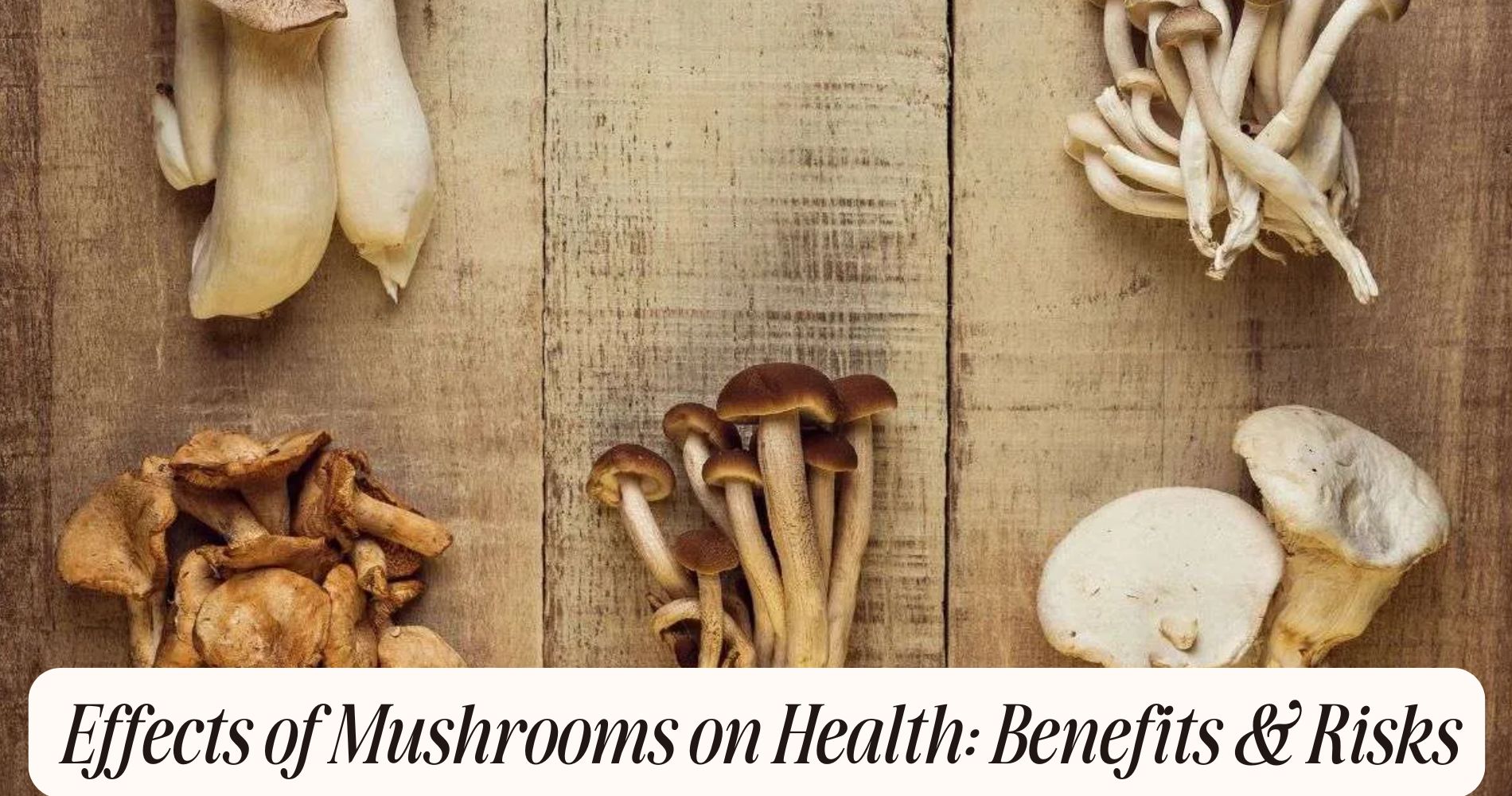
Mushroom for Blood Sugar Control: What You Should Know
Adding mushroom for blood sugar management to your diet can be a smart, natural approach. Varieties like shiitake, reishi, and maitake contain beta-glucans, which help regulate blood sugar by slowing sugar absorption and enhancing insulin sensitivity. These nutrient-dense mushrooms have a low glycemic index, making them ideal for maintaining steady energy levels. Easily incorporate them into soups, stir-fries, or salads for a flavorful and health-boosting meal. Discover more about how mushrooms can naturally support balanced blood sugar levels in your daily diet!
Understanding the Link Between Mushrooms and Blood Sugar Regulation
When exploring natural ways to manage blood sugar levels, understanding how mushrooms can help is essential. Various mushroom varieties have been studied for their potential benefits in regulating blood sugar.
Mushrooms like shiitake, reishi, and maitake are particularly noted for their low glycemic index, meaning they've minimal impact on blood sugar spikes. By incorporating these into your diet, you may benefit from a more stable blood sugar level over time.
Research suggests that these mushrooms not only help with glycemic control but also offer numerous health benefits. They can be easily added to your meals, whether in soups, stir-fries, or salads.
Key Nutrients in Mushrooms That Impact Blood Sugar
Mushrooms are a powerhouse of nutrients that play a notable role in blood sugar management. Their nutrient composition includes essential vitamins and minerals like vitamin D, potassium, and selenium, which contribute to overall metabolic health.
In addition, mushrooms are low in calories and carbohydrates, giving them a low glycemic index. This means they don't spike blood sugar levels notably, making them an excellent choice for those managing diabetes or insulin sensitivity.

Furthermore, mushrooms contain beta-glucans, a type of soluble fiber, which can slow down the absorption of sugars and improve insulin sensitivity.
Including mushrooms in your diet provides a practical way to support stable blood sugar levels. Their unique nutrient profile makes them an invaluable addition to a balanced diet focused on blood sugar control.
Exploring Different Types of Mushrooms for Blood Sugar Management
Understanding the nutritional benefits of mushrooms sets the stage for exploring how different varieties can aid in blood sugar management.
Shiitake mushrooms are rich in polysaccharides, which may help regulate glucose levels. Incorporating shiitake benefits into your diet can potentially enhance your body's ability to manage blood sugar.
Lion's mane mushrooms are another excellent option. Known for their neuroprotective properties, they may also play a role in controlling blood sugar by promoting healthy nerve function.
Including these mushrooms in your meals is practical and straightforward. Simply add them to soups, stir-fries, or salads to enjoy their potential benefits.
Scientific Studies on Mushrooms and Insulin Sensitivity
Although the culinary appeal of mushrooms is well-known, their potential impact on insulin sensitivity is gaining scientific interest. Recent studies suggest that certain mushroom extracts may improve your body's insulin response.
In particular, research has shown that compounds found in mushrooms, like polysaccharides, can enhance insulin sensitivity. This means your body could use insulin more effectively, helping to regulate blood sugar levels.

For instance, a study found that participants consuming mushroom extracts experienced improved insulin response compared to a control group. These findings indicate that incorporating mushrooms into your diet might be a practical way to support insulin function naturally.
While more research is needed, the evidence so far is promising and worth considering in managing blood sugar levels.
Tips for Incorporating Mushrooms Into Your Diet
Given the promising findings on mushrooms and insulin sensitivity, you might wonder how to incorporate them into your daily meals effectively.
Start by exploring mushroom recipes that fit your taste and dietary needs. Consider adding sliced mushrooms to salads, sautéing them with vegetables, or including them in soups and stews. They pair well with various cuisines, making meal planning easier.
Try substituting mushrooms for meat in dishes like pasta or stir-fry for a lower-calorie, nutrient-rich option. You could even experiment with mushroom powders in smoothies or sauces for added convenience.
Potential Considerations and Precautions When Using Mushrooms for Blood Sugar Control
While mushrooms can be a beneficial addition to your diet for blood sugar control, it's important to take into account potential precautions.
First, be aware of mushroom allergies. These can cause reactions ranging from mild to severe. If you suspect an allergy, consult a healthcare professional before adding mushrooms to your diet.
Also, follow dosage recommendations carefully. Though mushrooms can help regulate blood sugar, consuming them in excessive amounts might lead to unintended effects. It's best to start with small portions and gradually increase them under professional guidance.

Finally, verify the mushrooms you consume are safe and properly identified, as some wild varieties may be toxic. Taking these precautions helps you safely enjoy the potential benefits of mushrooms.
Balance Blood Sugar Naturally with SUPER MUSHROOM GUMMIES
Managing blood sugar levels can be easier with the right nutrition, and SUPER MUSHROOM GUMMIES make it effortless! Packed with 10 powerful functional mushrooms—including Reishi, Maitake, and Cordyceps, known for their blood sugar-balancing benefits—these convenient, chewable gummies help support energy, focus, and immune health. Plus, they taste like fresh wild berries, delivering wellness in a delicious bite. No jitters, no crash—just steady energy and holistic health. Try them today and fuel your body the natural way!
Frequently Asked Questions
Can Mushroom Supplements Replace Diabetes Medication?
You can't replace diabetes medication with mushroom supplements. While certain mushroom varieties may aid in diabetes management, they're only a complementary approach. Always consult your healthcare provider before incorporating new supplements into your routine.
Are There Side Effects of Consuming Too Many Mushrooms?
If you consume too many mushrooms, you might experience mushroom toxicity. Excessive consumption can lead to digestive issues or allergic reactions. It's essential to monitor your intake and consult a healthcare professional if any symptoms arise.
Do Mushrooms Interact With Other Dietary Supplements?
You should be aware that mushroom interactions with dietary supplements can vary. Some mushrooms might enhance or inhibit the effects of supplements. Always consult a healthcare professional to guarantee safe and effective use of both.
Is Mushroom Consumption Safe for Pregnant Women With Diabetes?
When considering mushroom consumption, consult your healthcare provider. Some mushroom varieties might be beneficial for pregnancy nutrition, but safety varies. For pregnant women with diabetes, personalized advice guarantees balanced blood sugar and nutrient intake without risks.
How Do Cooking Methods Affect Mushrooms' Blood Sugar Benefits?
You should know that cooking techniques like steaming or grilling preserve mushrooms' nutritional retention, enhancing their blood sugar benefits. Avoid frying, as it can reduce these benefits. Choose methods that maintain nutrients for ideal blood sugar management.
Conclusion
Incorporating mushrooms into your diet can be a practical way to support blood sugar control. Rich in key nutrients like fiber and antioxidants, mushrooms may improve insulin sensitivity and help manage blood sugar levels. Scientific studies suggest various types can be beneficial, but it's crucial to choose wisely. Always consider potential interactions with medications and consult your healthcare provider. Start by adding mushrooms to your meals to explore their benefits in a balanced, informed manner.




